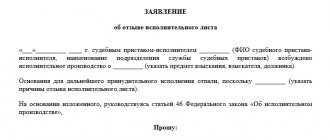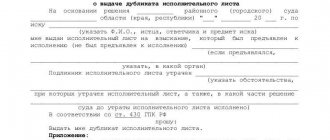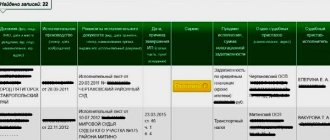Suspension of proceedings in a civil case is applied in the event of obstacles to the consideration of the case by the court. In this case, the court temporarily suspends all procedural actions in the case. Suspension of proceedings in a case entails the suspension of all procedural deadlines until the resumption of proceedings. During the period of suspension of proceedings in a case, the court does not perform any procedural actions, with the exception of monitoring the circumstances that caused the suspension, as well as considering issues of taking measures to secure the claim and provide evidence in the case. The grounds for suspending the proceedings, specified in Articles 215-216 of the Civil Procedure Code of the Russian Federation, are divided into those mandatory for the court and those applied at the discretion of the court.
Suspension of the proceedings is mandatory for the court
In the event of the death of a citizen, reorganization of a legal entity, if the disputed legal relationship allows for succession, the proceedings must be suspended. Succession provides for the possibility of transferring rights and obligations from a party to a case to his successor. The conclusion about the possibility of succession will be made by the court on the basis of the substantive law and examination of the evidence presented. The evidence in this case will be a death certificate or a court decision declaring the citizen dead; documents confirming the presence of heirs of the deceased. Succession on such material grounds as assignment of the right of claim or transfer of debt does not entail suspension of the case, since it is possible to involve a successor and postpone the court hearing for a short period of time necessary for preparation.
Recognition of a party as incompetent or the absence of a legal representative from a person declared incompetent is grounds for mandatory suspension of proceedings. Recognition of a citizen as incompetent or partially capable occurs in a special proceeding based on a court decision; the basis for suspending the proceedings will be a court decision recognizing the citizen as incompetent or partially capable. The basis for suspending the proceedings will be an application to the court by the interested person. A court decision declaring a citizen incompetent or partially capable is sent to the guardianship and trusteeship authority and is the basis for the appointment of a guardian or trustee. In the absence of a legal representative-citizen, a guardianship authority may be involved as a representative.
Participation of the defendant in hostilities, performance of tasks in conditions of emergency or martial law, as well as in military conflicts; or a request from a plaintiff participating in hostilities or performing tasks in a state of emergency or martial law, as well as in military conflicts, is another mandatory basis for the court to suspend proceedings in a civil case. If the plaintiff is involved in such actions, then in order to suspend the proceedings it is necessary to file a petition containing such a request. To carry out such actions, the party must have the status of a military serviceman, an employee of the competent authorities, who, due to the tasks assigned to them, have the right to participate in such actions, they must be subject to the relevant laws. For ordinary citizens, the fact of participation in hostilities is not grounds for suspending the proceedings. The evidence will be documents confirming service and a travel certificate or order of assignment to participate in such an event.
The impossibility of considering a case before the resolution of another case being considered in civil, administrative or criminal proceedings. In this case, the mandatory suspension arises if the cases are related. The facts considered in other civil, criminal or administrative proceedings must be relevant to the civil process that is subject to stay. In addition, these facts will be binding on issues of circumstances established by the court in relation to the persons participating in these cases. A court ruling on another case is presented as evidence, confirming that such a case is being resolved by the court. If the case is being processed by other authorities, the civil case cannot be suspended.
An appeal by the court to the Constitutional Court of the Russian Federation with a request regarding the compliance of the law to be applied with the Constitution of the Russian Federation. When establishing the need to verify the compliance of the law to be applied with the Constitution of the Russian Federation, the court must issue a reasoned ruling on this. This is the last condition for the mandatory stay of proceedings by the court.
Procedure for suspension and resumption
If circumstances arise that prevent the consideration of the case, the judge issues an appropriate ruling and transmits copies of it to the parties.
A petition from one of the participants may also serve as a reason for temporary termination of proceedings, provided that it is based on circumstances approved by the articles of the Code of Civil Procedure of the Russian Federation. This resolution comes into force within 15 days from the date of its adoption. This period is calculated from the day following the date of its issuance, and the 15th day after that is considered the last day when the participants in the process retain the right to appeal.
Suspension of proceedings at the discretion of the court
The party is in a medical facility. Staying in a medical institution involves inpatient treatment of the party. If illness prevents a party from participating in the trial, but treatment is provided on an outpatient basis, the case may be adjourned if appropriate evidence is presented. In the same way, the issue should be resolved if it turns out that the period of stay of the participating party in a medical institution (examination, completion of an annual treatment course, etc.) is not presumptive, but is known exactly or can only be a short period of time. The basis for suspending the proceedings must be a medical document confirming the citizen’s placement in a medical institution for an indefinite period.
Search for the defendant. The search for the defendant is possible in cases where his place of residence is unknown for demands made in defense of the interests of the Russian Federation, constituent entities of the Russian Federation, municipalities, as well as for demands for the collection of alimony, compensation for damage caused by injury, or damage to health, or the death of the breadwinner. A search for the defendant may be announced by the court if it is impossible to make a decision using the provisions of Article 119 of the Civil Procedure Code, when information is received about the unknown location of the defendant from the last known place of residence and the appointment of a lawyer.
Appointment of an expert examination by the court. Conducting a forensic examination is associated with the need to obtain special knowledge for the correct consideration and resolution of the case. An examination is appointed, as a rule, at the request of the parties, in order to present evidence on the assigned legally significant circumstances in the case. In this case, the court may suspend the proceedings if the examination requires significant time.
Appointment by the guardianship authority to examine living conditions in cases affecting the interests of children. The appointment by the guardianship and trusteeship body of an inspection of the living conditions of adoptive parents is mandatory in cases of adoption of a child, as well as in other cases affecting the rights and legally protected interests of children. Basically, these are cases in which, by virtue of current legislation, the participation of the guardianship and trusteeship authority is mandatory, and in which the future fate of the children is determined. As a rule, such a suspension is associated with existing doubts when preparing a conclusion on the case by the guardianship authority.
Sending a court order by the court. A writ is necessary if the evidence is located in another area and it is difficult for the court hearing the case to obtain it. The most common case of sending a letter of request is the interrogation of witnesses at their place of residence, since the travel of witnesses to participate in a court hearing entails serious financial costs. In addition, by court order you can request documents that are stored in medical institutions or internal affairs bodies; documents that can only be requested in the form of a duly certified copy. The need for a writ petition arises when a person is in prison.
Grounds on which a case may be terminated
The Civil Procedure Code of the Russian Federation has a separate article to outline all the grounds on which a judge can dismiss a case. And this is not just the right of the judge, but his duty; if any of the participants or the judge himself declares that there are grounds for dismissing the case, then it will be impossible to avoid it.
The case must be dismissed if:
- The claim must be considered outside the civil process;
- The application is submitted to protect the rights of another person, but the applicant does not have the authority to do so;
- The plaintiff demands to challenge acts that do not affect his interests;
- The dispute between the parties has already been resolved by a court or arbitration tribunal;
- Previously, the court recorded the plaintiff’s refusal of his claims or the conclusion of a settlement agreement;
- The citizen acting as a party to the case has died, or the organization has been liquidated, and succession in disputed legal relations is not allowed.
In procedural legislation, the list of grounds is exhaustive; the article does not contain a rule allowing the termination of a case on other grounds.
Resumption of proceedings in the case
The proceedings are resumed when the circumstances that caused its suspension have been eliminated. The court must make a ruling on the resumption of proceedings in the case. The ruling to suspend the proceedings may be appealed through the appellate procedure by filing a private complaint. After the resumption of proceedings, the civil case is considered by the court in accordance with the general procedure. After the resumption of proceedings, the court can perform all procedural actions without any restrictions.
Did not find an answer to your question? Ask it to a lawyer by phone!
Moscow: +7 (499) 391-94-20
Saint Petersburg: +7 (812) 565-33-70
All Russia: 8 (800) 550-82-94 (from 9.00 to 21.00 Moscow time)
Exception identified in the course of judicial practice
Sometimes judicial practice runs counter to legal norms. Such cases include the termination of proceedings in a civil proceeding relating to divorce. According to the rules of legal proceedings, spouses are given a month (Article 23 of the Criminal Code), during which they can resolve controversial issues, withdraw the statement of claim, thereby stopping the consideration of the case at the initial stage, until its logical conclusion and a decision.
If reconciliation did not last long, the plaintiff may file a second claim containing essentially the same subject matter and legal grounds. The only difference is the reason for the divorce. The court is obliged to accept the petition, it is subject to consideration in the prescribed manner. If the legislation of the Russian Federation did not provide for the repeated submission of an application to the judicial authority and did not give permission for this action, it would not comply with the principles of the law of a democratic state, declaring the lack of freedom of choice among citizens.
Actions of a procedural nature, regulated, in particular, by the chapters and articles of the Code of Civil Procedure of the Russian Federation, contain many nuances. Murzakova E.M. will provide qualified assistance to citizens who are interested in such issues as termination of proceedings in civil proceedings. It is extremely difficult for a person without a legal education to understand the intricacies on his own. A call to 8 (495) 505-24-50 will help clarify the situation.
Return to Civil Cases section
Possibility of appeal
A ruling that temporarily terminates the hearing of a case may be appealed by filing a private complaint. This document is drawn up according to the standard rules of official document flow. The form must have a header indicating the name of the court, full name, address and passport details of the applicant.
The document should be called “ Private Complaint ”. This point should be given special attention, since some courts return the document without consideration due to an incorrect or incomplete title.
A private complaint should be filed with the same judge who made the contested decision. This can be done in person, by mail or online on the government services portal. For personal appeal, the applicant must draw up several copies of the complaint according to the number of parties involved. On one of them, the clerk affixes a court stamp with the date of acceptance and returns it to the applicant.
On the public services portal, the complaint is submitted in scanned form, and all available documents are attached to it in exactly the same form. The list includes copies of:
- the disputed determination;
- applicant's passport;
- documents confirming the originator's arguments.
To file a complaint online, the applicant must have an electronic digital signature with which to sign an electronic document. In addition, it is necessary to register the user’s “Personal Account”. There is no state fee for filing applications of this kind.
The complaint is considered as part of a court hearing. To do this, the court sets a date and calls all interested parties to participate. These may be not only subjects who participated in the previous meeting, but also new parties whose interests are affected in connection with the adoption and cancellation of a controversial determination. The failure of any of the notified persons to appear does not deprive the judge of the opportunity to consider a private complaint at the appointed time . If the evidence presented is sufficient and complete, the court makes a decision to resume the consideration of the case. After this, the parties involved are issued summons with the date of the next meeting.








